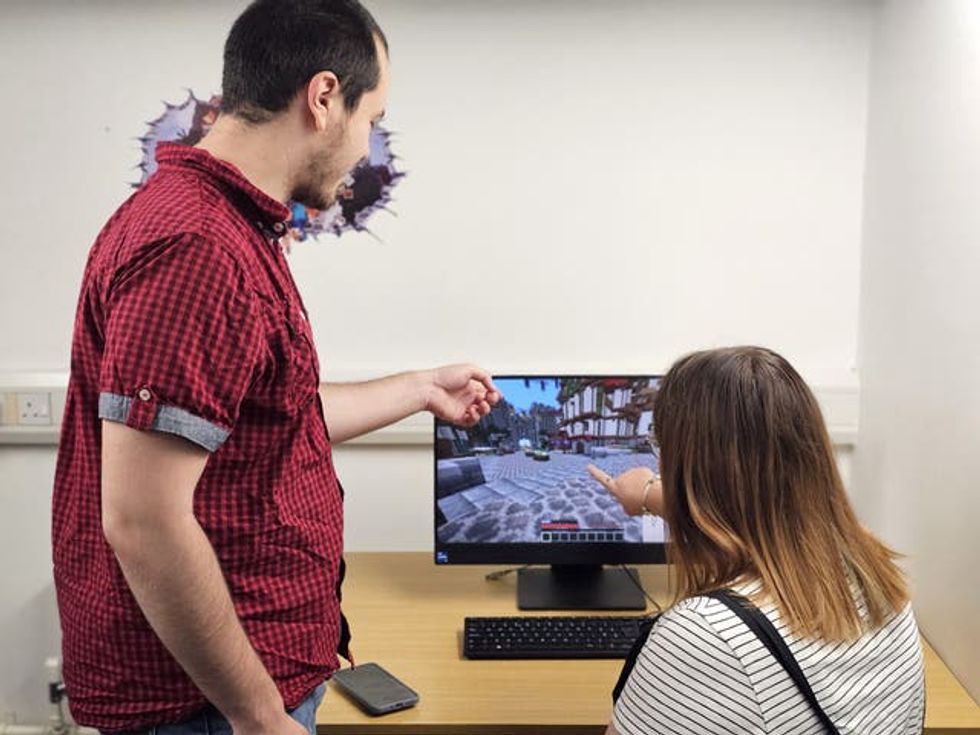Sam Russell
Aug 13, 2024

The Minecraft psychology lab (University of Essex/PA)
PA Media
A UK university says it is the first in the world to open a “Minecraft psychology lab”.
Students at the University of Essex will learn, research and build experiments within the popular computer game.
Lecturer Dr Wijnand van Tilburg said Minecraft “offers a uniquely malleable environment to study and learn about the psychology behind social behaviour, problem solving, and creativity”.
Six booths have been set up for psychology students to use Minecraft as part of the course.

Dr van Tilburg, who is leading the project, said: “We are proud to be the first university in the world to open a Minecraft psychology lab and we are excited to explore what we can do.
“Although it might seem unusual, gaming forms an increasingly important part of people’s social network and behaviour.
“Hundreds of millions of people around the world live, laugh, and learn through gaming – and how we interact online is an increasingly major area to research.
“What attracts players to Minecraft also interests me as a researcher.
“It offers a uniquely malleable environment to study and learn about the psychology behind social behaviour, problem solving, and creativity.
“Minecraft also allows us to work with neurodivergent students and support them online as it is an environment that many prefer.”
The university hopes its use of Minecraft will allow new research by post-graduate students, offering the possibility to study aggression and violence in a safe way not possible offline.
The lab is in the Department of Psychology on the university’s Colchester campus.
Head of department Silke Paulmann said the lab “emphasises our commitment to providing high quality psychology education” and “conducting excellent research through innovation”.
Top 100
The Conversation (0)













